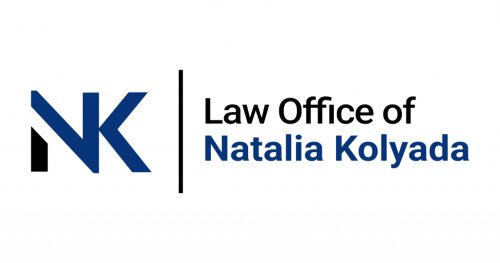Best Office Solutions Lawyers in Georgia
Share your needs with us, get contacted by law firms.
Free. Takes 2 min.
Or refine your search by selecting a city:
List of the best lawyers in Georgia, United States
About Office Solutions Law in Georgia, United States
Office Solutions law in Georgia refers to the set of legal considerations and regulations that govern office spaces, related contracts, workplace technology, and business operations within office environments. Whether involving traditional office leasing, coworking arrangements, office equipment procurement, or workplace compliance, Office Solutions law ensures that businesses operate within applicable legal frameworks. In Georgia, these laws cover matters like commercial leases, zoning, business licensing, workplace safety, and rights and obligations between landlords, tenants, vendors, and other stakeholders. Having an understanding of these rules is crucial for smooth business operations and to minimize legal risks associated with offices in Georgia.
Why You May Need a Lawyer
There are several scenarios where legal guidance in the realm of Office Solutions becomes necessary. You may require a lawyer if you are:
- Negotiating or renewing a commercial office lease
- Starting or expanding an office for your business
- Encountering a dispute regarding office space or shared resources
- Reviewing contracts with office solutions vendors (furniture, IT services, cleaning, etc.)
- Setting up a coworking space and needing compliance advice
- Handling employment or disability accommodations in the office
- Dealing with zoning or building code compliance issues
- Managing liability and insurance concerns for office property
- Restructuring office arrangements due to business growth or downsizing
- Responding to claims from employees, clients, or regulatory bodies about office conditions
Legal advice can help you protect your interests, fulfill regulatory obligations, and proactively avoid costly disputes or penalties.
Local Laws Overview
In Georgia, several key laws impact Office Solutions:
- Commercial Leasing: Georgia law governs the rights of landlords and tenants in office leasing, including security deposits, lease terminations, eviction processes, and renewal negotiations. Unlike residential leases, commercial leases often involve more negotiation and fewer statutory protections, so careful contract review is essential.
- Zoning and Land Use: Local ordinances affect the types of businesses that can operate in certain office spaces. Zoning laws in Georgia are enforced by municipalities and counties, so requirements can differ depending on location.
- Building Codes and Accessibility: Office environments must comply with Georgia building codes as well as federal standards like the Americans with Disabilities Act (ADA) to ensure safe and accessible workplaces.
- Workplace Safety: The Georgia Department of Public Health and federal OSHA regulations set requirements for occupational safety, sanitation, and emergency protocols within office environments.
- Business Licenses and Permits: Operating an office in Georgia requires appropriate registrations, which may include a general business license, any relevant professional licenses, and local permits.
- Contractual Relationships: Agreements with office solution providers (cleaning, security, IT, etc.) are subject to Georgia contract law, so clarity and enforceability of these agreements are key.
Staying in compliance with these laws can prevent disputes and avoid interruptions to your business operations.
Frequently Asked Questions
What should I look for in a Georgia office lease?
You should carefully review the lease for terms on rent, utilities, maintenance, renewal options, subleasing, security deposits, and exit clauses. Legal counsel can help ensure protections are in place for your business.
Do I need a business license to run my office in Georgia?
Yes, most businesses operating an office in Georgia require a business license from the relevant city or county. Certain professions may have additional licensing requirements.
What are my rights if my office landlord does not make repairs?
Commercial tenants in Georgia should refer to their lease, as there are fewer statutory protections than for residential tenants. Often, legal remedies will depend on lease terms, so consulting a lawyer is advised.
Can I sublease my office space in Georgia?
Subleasing is generally allowed only if your office lease specifically permits it or your landlord grants written consent. Check your lease for details before proceeding.
Are coworking spaces regulated differently than traditional offices in Georgia?
Coworking spaces must comply with local zoning, safety, health, and accessibility regulations just like traditional offices, but may also have their own rules and membership agreements to manage shared resources.
Who is responsible for ADA compliance in an office in Georgia?
Both landlords and tenants can share responsibility for ADA compliance, depending on lease terms and who controls the buildout or use of the premises. Clarifying this in your lease is important.
What happens if I break my office lease early?
Consequences generally depend on your lease agreement. You may be liable for rent for the remainder of the term, but a lawyer can help negotiate an exit strategy or dispute unfair penalties.
How can I resolve disputes with office solution vendors?
First, review your contract for dispute resolution provisions. Mediation, arbitration, or legal action may be options, and a lawyer can help you enforce your rights.
What safety requirements must my Georgia office meet?
You must comply with state and federal safety regulations, including fire codes, emergency exits, sanitation, and any industry-specific rules. OSHA and the Georgia Department of Public Health are primary regulators.
Is virtual office space subject to the same laws as physical offices?
Some aspects, such as business registration and certain contracts, apply to virtual offices, but physical office requirements like building codes and accessibility standards may not unless you maintain a physical site.
Additional Resources
The following organizations and governmental departments provide valuable information and assistance regarding Office Solutions in Georgia:
- Georgia Department of Economic Development - Resources for new and existing business offices
- Georgia Secretary of State - Business registration and licensing information
- Local county and city government offices - Issuance of business licenses and zoning information
- Georgia State Bar Association - Lawyer referral services and legal resources
- Georgia Department of Public Health - Workplace health and safety guidelines
- U.S. Small Business Administration (SBA) Georgia District Office - Support for office-based businesses
- Georgia Office of Insurance and Safety Fire Commissioner - Guidance on office property insurance
Next Steps
If you need legal assistance for an Office Solutions matter in Georgia, start by gathering your relevant documents such as leases, vendor contracts, or correspondence. Clearly outline your goals and concerns. You can contact a local attorney with experience in commercial and office-related law. The Georgia State Bar Association offers a directory and lawyer referral service to help you find qualified counsel. Before engaging a lawyer, inquire about their experience with office law issues and fee structures. Acting proactively and seeking professional legal advice can help you avoid costly mistakes and ensure your office operates smoothly and legally in Georgia.
Lawzana helps you find the best lawyers and law firms in Georgia through a curated and pre-screened list of qualified legal professionals. Our platform offers rankings and detailed profiles of attorneys and law firms, allowing you to compare based on practice areas, including Office Solutions, experience, and client feedback.
Each profile includes a description of the firm's areas of practice, client reviews, team members and partners, year of establishment, spoken languages, office locations, contact information, social media presence, and any published articles or resources. Most firms on our platform speak English and are experienced in both local and international legal matters.
Get a quote from top-rated law firms in Georgia, United States — quickly, securely, and without unnecessary hassle.
Disclaimer:
The information provided on this page is for general informational purposes only and does not constitute legal advice. While we strive to ensure the accuracy and relevance of the content, legal information may change over time, and interpretations of the law can vary. You should always consult with a qualified legal professional for advice specific to your situation.
We disclaim all liability for actions taken or not taken based on the content of this page. If you believe any information is incorrect or outdated, please contact us, and we will review and update it where appropriate.
Browse office solutions law firms by city in Georgia
Refine your search by selecting a city.










